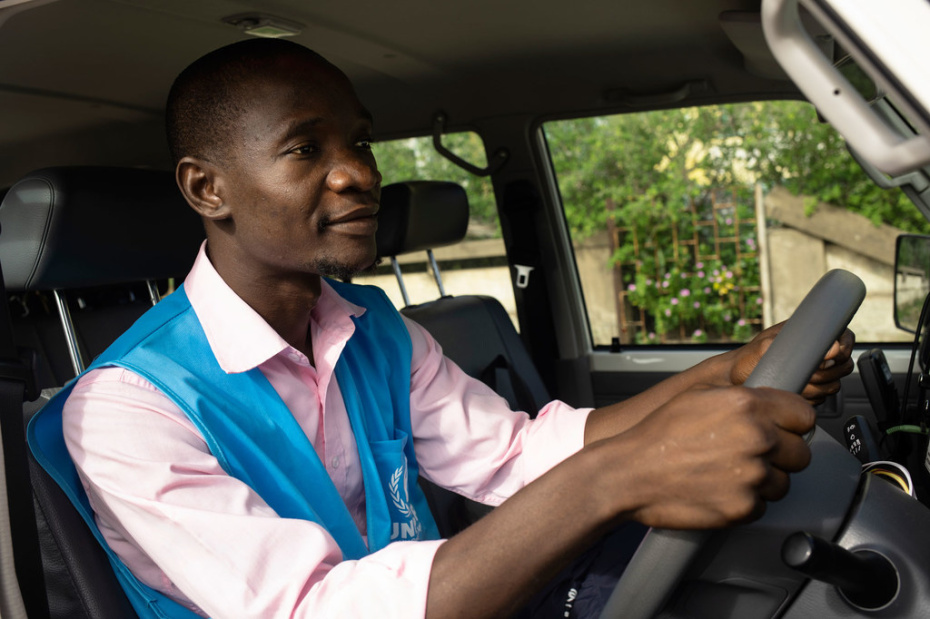Breadcrumb

First Person: ‘I’m happy to be able to give back’

Since the pandemic , things have really changed. We have to wash our hands frequently, keep social distance and wear masks every time. I keep sanitizer in the vehicle and use it often. In the resettlement sites, there are wash stations, and the first thing you do when you arrive is wash your hands.
I feel that, as a humanitarian worker, I need to set an example and show the people the right thing to do because, when they see us following the guidelines, they do it too.

‘I’m here for a good cause’
It’s always rewarding to be in a position to lend a helping hand to people in need. I appreciate the responsibility I have as a driver, even though it’s very tough work. The important thing I remember from my training is that, when I am driving, everyone in the vehicle is in my hands. It means I have to work in a very calm and concentrated manner so I can ensure that people get to their destination safely.
I currently work in the north, where more than 250,000 people have been displaced since 2017 by violent attacks from armed groups. This past year, the attacks have intensified, and insecurity is the current challenge. It means we are unable to reach some areas where people are displaced, and need our help and support, and that we can’t be with our families in this part of the country.
It’s tough because I was used to seeing my family – my wife and two kids – every day when I was in Beira. But I’m here for a good cause and that makes it worthwhile.

I like the responsibility and the working environment. I have learned how to talk to people, how to be humble, and how to relate to many different people from all over the world. And I love that we can help people, talk to them and comfort them during the difficult times. Being part of the response, working with UNHCR, means a lot to me.
Most days I’m happy because I’m able to give back. In Beira and Buzi, we visited the people affected by cyclones and we were able to take UNHCR staff to the field. We would carry supplies and food to the people affected and spend hours on the road going to the resettlement sites.
I used to work as a teacher. My training was helpful in the resettlement sites as it was much easier to be close to the children. I would play and interact with them, so that they would forget about their situation, even if for a little bit.
I am currently helping people displaced by violence. It’s a new experience for me and I believe we are helping bring about a change in their lives, through the support and protection we provide.
I am thankful to be part of a team that helps people, by delivering relief and food, and providing support. Right now, I am here, doing something meaningful.
I believe that we can all help people in many ways. Whoever you are and wherever you are, you can make a difference, no matter what.

‘We were not prepared’
I joined UNHCR after Cyclone Idai hit Mozambique in March 2019; we heard on the news that there would be a cyclone, but we kind of ignored it, thinking that it would be a little wind and rain that would soon pass. Later that afternoon, it started to rain heavily, and we were not prepared at all.
The wind was blowing very strongly, it sounded like a whistle. My house was shaking, and I could hear that the screws in the roof were about to come off. In my neighbourhood, most of the houses were affected and many roofs were blown off. We saw coconut trees falling and mango trees uprooted.
The morning after the cyclone, it was like I was in another city! I saw people crying and others saying “There is no more life in Beira. What do we do now?” Seeing how the cyclone had destroyed many lives made me want to help others, so I joined UNHCR as a driver.
